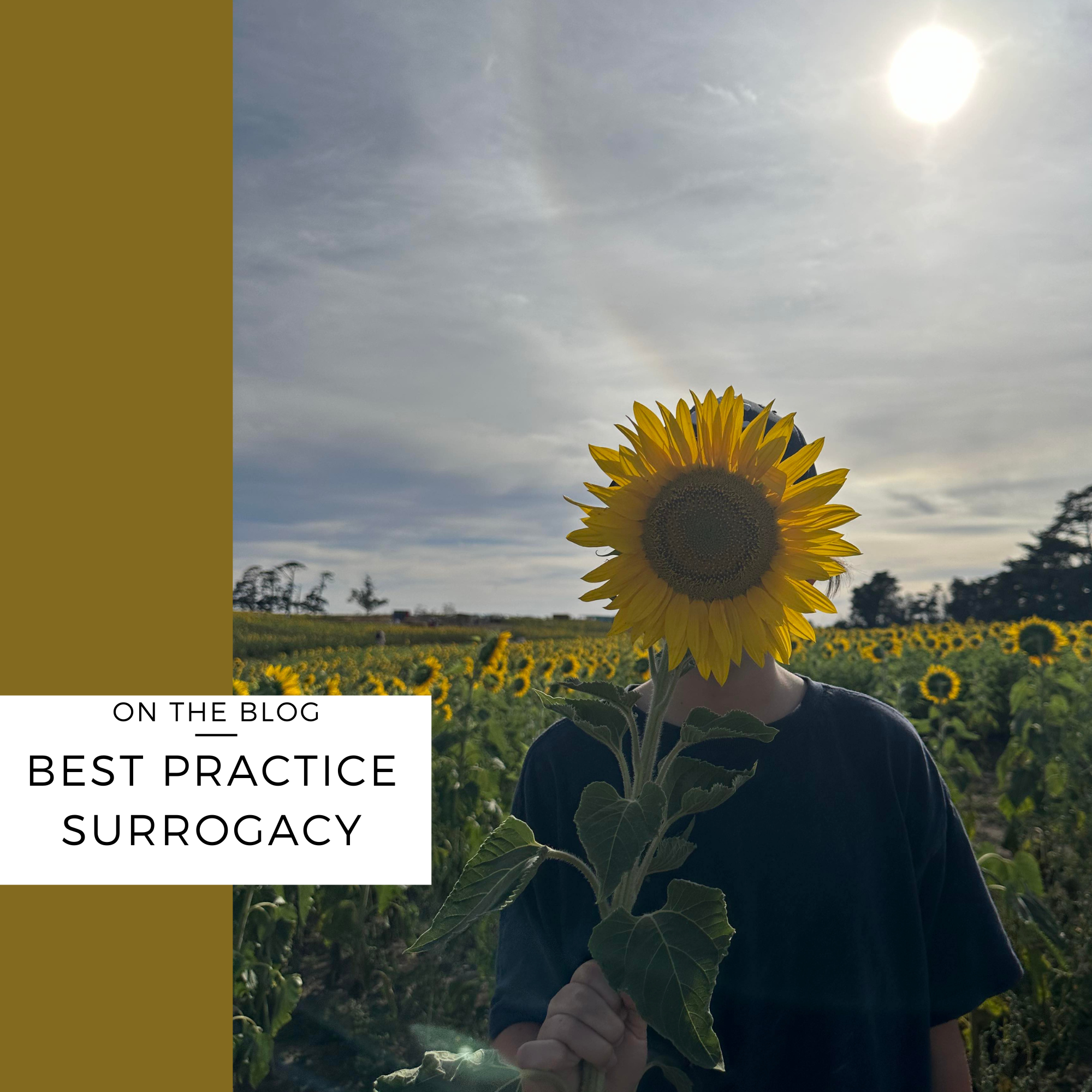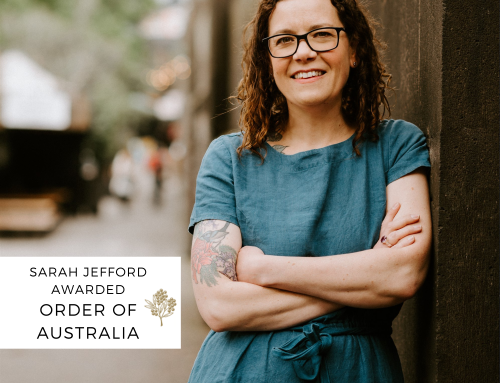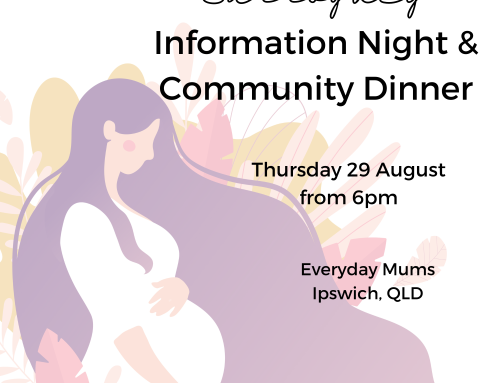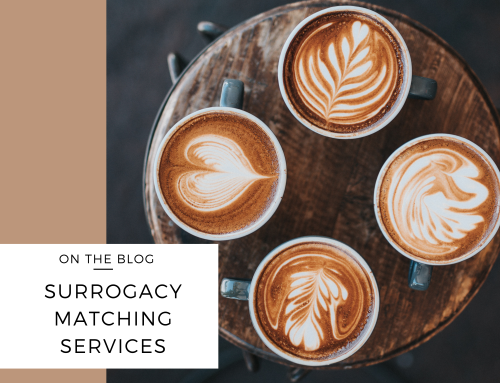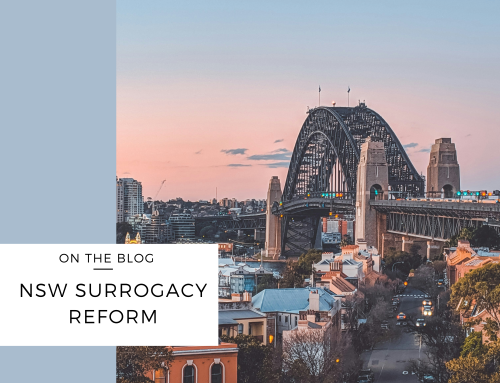Best practice surrogacy – what is it, how we do go about it, and how do we make sure we’re getting it right?
Surrogacy sometimes ends in a headline, such as in 2019 when Foreign Correspondent covered surrogacy in the Ukraine, or when allegations of human trafficking arose in Crete in 2023. Often when surrogacy is a headline, it is not a positive story and my heart breaks for the women, babies and intended parents who have been left traumatised, mistreated and exploited.
We can learn lessons when surrogacy doesn’t go well. Whether pursuing surrogacy overseas or within Australia, we need to make informed decisions that promote best practice surrogacy which includes the best interests of the child, the welfare of the surrogates, and protects the interests of vulnerable intended parents.
Most parents will know the feeling of ‘baby lust’, of being willing to do anything it will take to have a baby. I am sympathetic to those feelings. But having children should not be at any cost, and particularly not at the costs of the interests of the child, or the welfare of the surrogate or any donors. It should not be at the cost of your own mental health or well-being.
So what does best practice surrogacy and donor-conception look like? How do we ensure that we’re upholding best practice when pursuing donor conception and surrogacy?
Above all else, we need to consider the rights and interests of the child. The best interests of a child are enshrined in international and Australian law, and should be the thing that informs all your decision-making. You might like to look at the Convention on the Rights of the Child which provides some guidance. In Australia we consider that a child should be protected from harm (abuse, neglect, or violence) and that they should have a meaningful relationship with their parents. A child’s interests include relationships with other important people in their lives, and a right to have their identity protected.
Donor Conception
We know that anonymous donation is not in the child’ best interests. Gone are the days when clinics would tell infertile couples not to tell their children they were donor-conceived or facilitate anonymous donor conception. Best practice donor conception includes the donor-conceived person having access to information about their donor and heritage, at least when they turn 18. We place the interests of the donor-conceived person above that of the adults who made decisions about their creation.
It can be difficult to consider what our future, hypothetical children might think of their conception, and the decisions we made before they existed. It might be useful to consider how you would feel, if you were to discover you that were donor-conceived, and your donor’s details were not available to you. Or that your donor lives in another country and is only known by their physical descriptors. Or, that you have any number of donor half-siblings across the world. If you would like to know how donor-conceived people feel about their stories, have a look at We Are Donor Conceived. Some of the stories are confronting and emotional, but they give you an insight into how your child might feel in the future. We also know that donor conception is no longer anonymous, with the availability of consumer DNA testing.
Surrogacy
Surrogacy is not without its critics. Some people consider that all surrogacy, commercial or altruistic, should be outlawed. You can read my thoughts on their common criticisms and think about your own value systems when faced with these criticisms.
There are several considerations for best practice surrogacy, which protect the rights of everyone involved but particularly the rights of the child and the surrogate. Some things to consider, include:
- Whether the surrogate is financially secure. If she is not, or if her primary motivation for being a surrogate is for financial reward, then consider whether you can be sure that she is not vulnerable to being exploited. Many of the women in Ukraine and other countries are recruited on the basis that they need money, and therefore vulnerable to exploitation.
. - Whether the surrogate speaks English and can communicate in English. There are cases of surrogates signing surrogacy contracts despite having little to no literacy. One way to ensure that she understand what she’s consenting to is to talk to her yourself – in English.
. - Expect to have a relationship with the surrogate, and pursue an option where this is encouraged. Some surrogacy agencies overseas expect that the intended parents and surrogate won’t have a relationship at all – demand better, for you and your future baby. Unless you have direct contact with your surrogate, you cannot be certain of the information provided by the agency or clinic, and you cannot be certain that she is being looked after.
. - Whether the surrogate retains at least some bodily autonomy. Contracts that treat her like a commodity, that completely remove any autonomy, are exploitative and not in her interests or that of any child born through the arrangement.
. - Pursue surrogacy in countries that are regulated and protect the rights of the child and surrogate. Read reviews from other intended parents, and do your research. A proper regulated surrogacy framework might be more expensive, but is often to the benefit of everyone involved.
. - Cheaper is not better. A fast, cheap way to a baby is not likely to be an ethical, safe way to create a family. If you are focused on the cheapest way to make a baby, you are taking significant risks with your family. I get it – surrogacy is expensive. But if you are committed to maintaining an ethical approach and supporting the interests of the baby and the surrogate, then it is worth the investment of time and money to get it right.
. - It’s really easy, and cheap, to create a website with fancy graphics that make promises of a baby (or two). Do not rely on the agencies or clinics to tell you the hard truths – why would they, when it might mean you go elsewhere? Do your research. Ask other intended parents about their experiences. Ask if the people referring you are making money from the referral. Don’t believe all the promises and glossy pictures.
. - Regardless of which agency or clinic you are engaging with, you should consider what services they are offering, and ask questions to satisfy yourself that the service provided meets your expectations and needs.
You can research more about donor conception, including listening to Podcast episodes and reading blog posts about the different perspectives. In particular, I recommend listening to this episode with VARTA’s Kate Bourne, and this episode with donor recipient Gail Pascoe.
The Australian government has published a website about surrogacy that you might find useful.
Intended parent (now parent) through surrogacy Costa, spoke to me about his surrogacy experience and how he managed to maintain his integrity and uphold his values, for the benefit of his daughter.
Read about international surrogacy options for Australian intended parents, and beware those who take kickbacks for facilitating overseas surrogacy deals.
Sarah has written a book, More Than Just a Baby: A Guide to Surrogacy for Intended Parents and Surrogates, which is the only guide to surrogacy in Australia.
You can find more information in the free Surrogacy Handbook, reading articles in the Blog, by listening to more episodes of the Surrogacy Podcast. You can also book in for a consult with me below, and check out the legal services I provide.

